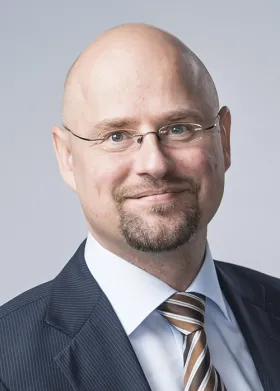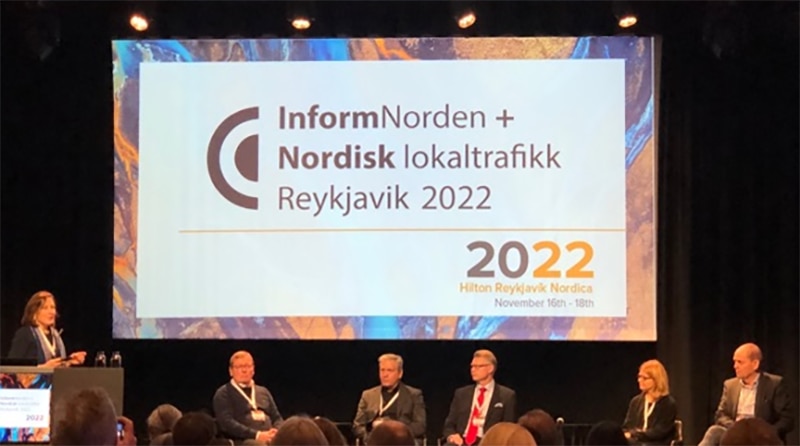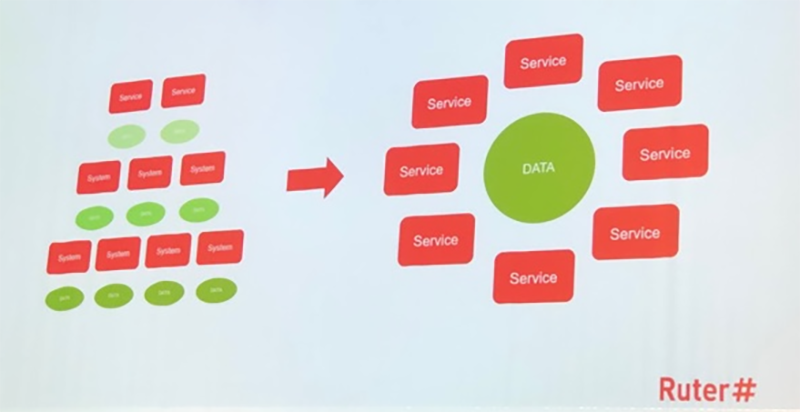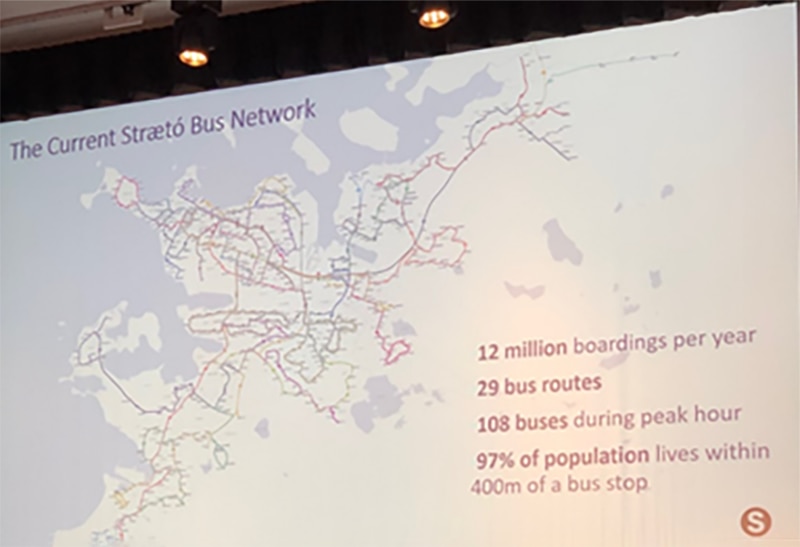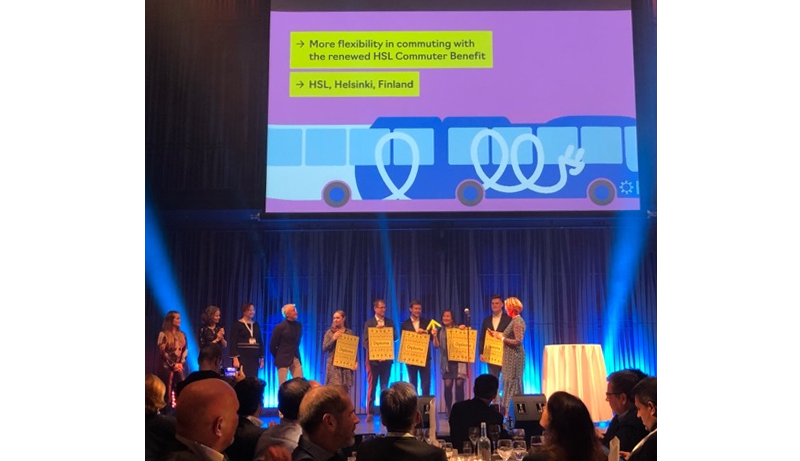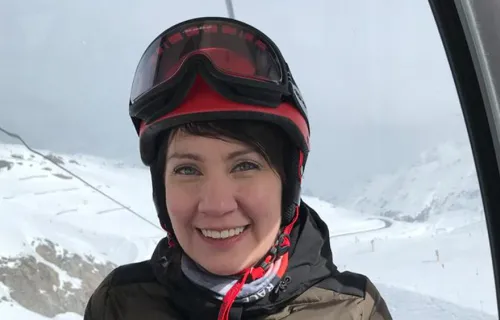The Nordic collaboration is inspiring, both successes and challenges are discussed in a warm atmosphere which enables knowledge sharing and learning. All the Nordic cities are fundamentally solving the same public transport issues, naturally the history and geography might vary, but the need to give reliable and up-to-date passenger information and easy to use transit network with ticketing is universal.
It was very refreshing to meet after three years fellow Nordic public transport experts. InformNorden originates from the collaboration to share and have dialog between Nordic Public Transport authorities in the capital regions. Event is organized by Strætó, Ruter, Movia, SL and HSL.
Here are couple takeaways from the conference.
How to get the passengers back
Theme of the congress was the New Normal. It was interesting to hear how the Nordic transport organization have tacked how to get the passengers back after covid.
All presenters had different approaches, yet having the same goal - how to serve customers, what would make people return to public transport users. The presenters summarized what their organizations had done, what campaigns what strategies they had chosen in the new normal.
Key takeaway is a very different tone of voice needed to try to make people feel safe and comfortable depending the situation. Especially considering how contradicting it was to tell the customers not to come, and then later on trying to win them back as summarized by Suss Forssman Thullberg in her great presentation.
Ruter's Online Only with Data Centric Architecture
Excellent presentation by Ruter’s CIO Terje Storhaug. Ruter aims for ticketing and passenger information online only architecture with data centric approach. I liked their concept a lot. Passengers are always online these days with their mobile phones, why would systems in buses and other vehicles be any different.
In Tampere region similar approach was used already in 2010 in their passenger information and traffic light priority solution. Worked pretty well, the amount of problem incidents we got was significantly less than in some city areas. During 10 years’ service I don’t remember any big challenges coming from the telecom networks. Mobile networks worked generally well, in some locations we used sim cards from multiple telecom operators or a longer antenna in traffic light junction.
The key point is that this makes overall architecture simpler and the amount of devices (and software) less in the moving vehicles. The maintenance part with the moving vehicles is always the pain point and how to sell tickets if in offline area. The simpler, the better. It is far easier if your vehicles are just collecting information and all processing is done on the back-end. Naturally you rely 100% in your ticketing and passenger information to the telecom networks, but if you can reduce for example on maintenance costs over the whole life cycle, this is really worth considering.
Region Stockholm Ticketing Solution Renewal
SL in Region Stockholm is building a new ticketing system in-house and they shared the story so far. From the IT-perspective it was interesting to see that they have 5 scrum teams with DevOps methods working on the solution. This a good example when you renew something, that has been in production for several years and is relatively complex you will usually need more that one scrum team.
A good reminder that ticketing and passenger information projects need expertise from several different fields, including the DevOps. One good team thinking should more often mean couple teams working together on the solution while jointly prioritizing and tackling challenges along the way. On the right showed lessons learned from the SL’s ongoing ticketing renewal project.
Strætó – Citizen involvement in Public Transport Transport Planning
Ragnheiður Einarsdóttir from Reykjavik’s Strætó gave a good presentation how they are involving the local community and citizens in their planning process. Design method followed four clear goals, for example having fast corridor bus routes. More importantly when communicating the plans to the citizens term First plans were used to indicate that these can still change based on the public feedback. At the moment the public transport ridership share is relatively low in Reykjavik and hopefully the new transit plan will improve commuting possibilities.
On a side note it was fun to meet face2face as there has already been earlier collaboration between Helsinki region’s and Strætó’s journey planner development.
HSL - InformNorden Design Award Winner
Helsinki Region Transport (HSL) has introduced a new flexible company benefit (for their BtoB customers) how companies can obtain flexible public transport benefits for their employees. A smart way to attract more passengers by giving companies ways to promote more sustainable ways of transport. To top up this deal, now even with more flexibility for the companies and their employees. Congratulations HSL!

